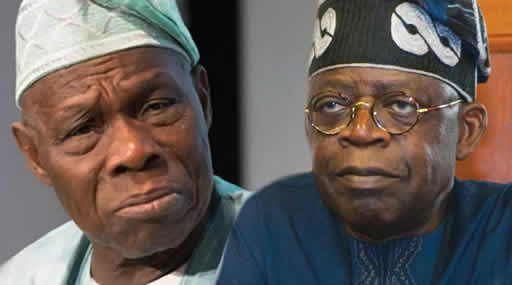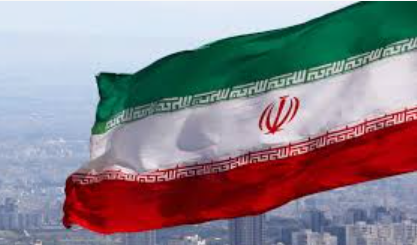
FG knocks Obasanjo as ex-President rates Buhari worst in corruption
The presidency has criticized former President Olusegun Obasanjo for cautioning that President Bola Tinubu's administration may exceed the corruption levels seen during Muhammadu Buhari's tenure.
Obasanjo has characterized Buhari's administration as the most detrimental in Nigeria's democratic history. He expressed concern that the current government under Tinubu is seemingly on a similar trajectory of mismanagement and corruption, potentially surpassing Buhari's legacy.
These comments were made in the opening chapter of Obasanjo's recently published book, “Nigeria: Past and Future,” which he introduced last week to mark his 88th birthday.
In this book, Obasanjo condemned the N15.6 trillion Lagos-Calabar Coastal highway project as both wasteful and corrupt. He further criticized Tinubu's government for allocating N21 billion for a new official residence for Vice President Kashim Shettima, labeling it a misallocation of resources and a means to siphon public funds.
He remarked, “Clear instances of waste, corruption, and poor prioritization include the controversial Lagos-Calabar Coastal Road, which the President has ignored despite public outcry, and the extravagant N21 billion spent on the Vice-President’s residence during a time of economic distress, intended to project an image of a proactive administration and emphasize the significance of the Vice-President's role. Such narrow-mindedness is astonishing!”
Obasanjo also asserted that corruption reached its peak during Buhari's presidency, aided by his Minister of Justice and Attorney General of the Federation, Abubakar Malami (SAN).
He stated, “The most egregious waste, the establishment of corruption, and the discouragement of officials combating corruption occurred during President Buhari's administration, with the complicity of his Attorney General, Abubakar Malami.”
He, however, claimed that the Tinubu administration could potentially exceed Buhari’s achievements.
“After nearly two years of President Tinubu's tenure, it seems that the practice of neglecting the needs of over 230 million Nigerians persists, as everything appears to be transactional, with the prevailing sentiment being ‘It is my turn to benefit,’” Obasanjo remarked.
On Thursday, Buhari was unavailable for comment, as his spokesperson, Garba Shehu, did not respond to inquiries regarding the allegations against the former president.
Malami also chose not to comment on the book, stating that he had not read it.
In a voice message, Malami stated, “I would be able to respond, but I prefer not to engage with mere speculations. I cannot confirm whether such allegations were made. If you recall, during a Hard Talk interview, similar corruption allegations were directed at him, and he is fully aware of that.
“Considering that His Excellency, President Obasanjo, has also been subjected to unfounded corruption allegations over the years, I find it improbable that he would make such claims without providing specific details—such as the identity of the alleged briber, the timing of the bribe, the amount involved, the circumstances surrounding it, and the individuals who facilitated it.
“All these particulars are essential when making an accusation. If the claim remains ambiguous, I struggle to accept that His Excellency actually made such a statement—especially since he has encountered similar accusations in the past.
“Therefore, please direct me to the specific page, and if possible, provide a scan or excerpt so that I can respond in an informed manner. I have not yet reviewed the book to verify whether such allegations were indeed made by His Excellency, President Olusegun Obasanjo.”
The Presidency, however, strongly criticized former President Obasanjo regarding the contentious Lagos-Calabar Coastal highway.
The Senior Special Assistant to the President for Media and Publicity, Temitope Ajayi, expressed on X that "Former President Obasanjo appears to regard himself as the sole Nigerian divinely appointed to determine what is best for the nation at any given time.
"If, during his eight years in office, he was unable to address the issues of the Lagos-Ibadan Expressway and the Lagos-Abeokuta road, we cannot regard his recent opinions on the Lagos-Calabar highway as well-informed."
Minister of Works, David Umahi, addressed the matter in Akure, Ondo State, stating, "The project is neither wasteful nor corrupt. I have seen comments on social media questioning why the government or the contractor has not provided explanations, but as the Minister of Works, I am fully qualified to clarify the project.
"Criticism is a natural part of public discourse, but I have conducted a thorough analysis of the project's benefits and costs. Approximately 70 percent of the work is already completed, and this project will significantly enhance the prosperity of our citizens. I urge those who are critical to refrain from using the road."
Umahi highlighted that the first phase of the project is expected to be completed next year, adding, "I would like to commend the President. His colleagues may feel envious and frustrated, but that is a testament to his success, particularly in areas where others have failed.
"This project is transparent and offers a substantial return on investment. I encourage everyone to disregard any distractions."
In his book, Obasanjo specifically criticized Buhari for not adhering to the principles he once advocated as a military leader in 1983.
Reflecting on Buhari's rationale for his coup against the civilian government of Alhaji Shehu Shagari, which he justified by denouncing corruption and electoral fraud, Obasanjo expressed disappointment that Buhari's tenure ultimately resulted in one of the most ineffective administrations in Nigeria's civil governance.
Obasanjo recounted that in 1983, when explaining the military's overthrow of the democratically elected government led by the late Alhaji Shehu Shagari, General Buhari (retd) pointed to the mismanagement of public funds, which weakened the economy, and the absence of credible elections as key factors for the military intervention.
In his book, Buhari is quoted stating, “The last general election was anything but free and fair… There is ample evidence that rigging and thuggery were relative to the resources available to the political parties.
“This conclusively proved to us that the parties have not developed in the presidential system of government in which the nation invested so much material and human resources.
“The corrupt, inept, and insensitive leadership in the last four years has been the source of immorality and impropriety in our society… We deplore corruption in all its facets.”
However, Obasanjo contended that despite the commendable nature of Buhari's 1983 address, he failed to translate his words into action. Even after serving as a democratically elected President for eight years, Buhari's administration is regarded as the most ineffective in Nigeria's history of civil governance.
Obasanjo remarked, “Buhari made good points and articulated them well, yet he did not act on them when he assumed the presidency eleven years later.
“Words are inexpensive, and the necessary actions were neglected during Buhari’s civil administration from 2015 to 2023, which stands as the worst civil administration in Nigeria's history.
“Perhaps those ideas and sentiments were not genuinely his; he may have merely recited them as they were presented to him. Currently, only Bola Tinubu’s administration appears to be vying for a similar level of criticism as Buhari’s.”
In the chapter entitled “From the Beginning Till Now: The Missing Key,” Obasanjo examined the leadership of Nigeria following its independence, emphasizing that poor governance, corruption, and self-serving interests have consistently hindered the nation's advancement.
He noted that successive administrations, whether military or civilian, have consistently recognized poor governance, ineffective leadership, and corruption as significant factors contributing to the country's stalled development and widespread poverty, yet they have often failed to take meaningful action to alter this situation.
The former President expressed strong criticism towards certain officials who served under former President Buhari.
He acknowledged the challenges faced by the Economic and Financial Crimes Commission and the Independent Corrupt Practices and Other Related Offences Commission in securing convictions against high-profile individuals involved in significant corruption. However, he pointed out that notable successes were achieved, such as the sentencing of former Plateau State Governor Joshua Dariye to 10 years and his Taraba State counterpart Jolly Nyame to 12 years for the embezzlement of N1.126 billion and N1.64 billion in state funds, respectively.
Dariye and Nyame were released from the correctional facility located in the Kuje area of the Federal Capital Territory on August 8, 2022, just four months after receiving state pardons.
During a Council of State meeting led by former President Buhari in April 2022, Dariye and Nyame were included among 159 inmates who were granted pardons.
Both former governors, who had been imprisoned for fraud, received pardons based on considerations of age and health issues.
Nyame was found guilty in 2018 and sentenced to 14





